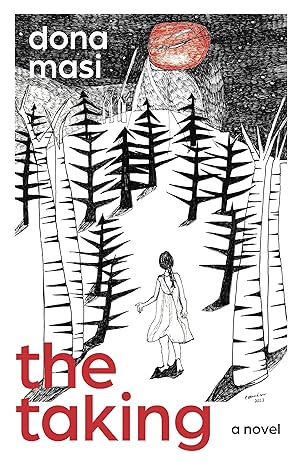THE SURPRISING SILVER LINING OF UNSUCCESSFULNESS
 THE SURPRISING SILVER LINING OF UNSUCCESSFULNESS
THE SURPRISING SILVER LINING OF UNSUCCESSFULNESS
There is a lot of fuss and celebration when a book comes into the world: we do interviews, readers tag us in social media posts, friends near and far send congratulations. And then, inevitably, the world moves on. Messages—and sales—slow down, sometimes to a trickle, and for some, the inevitable silence can be overwhelming. The world must move on. It must make way for more new books, the attention has to shift, and we can end up feeling like our book has been too quickly forgotten.
I would never deny the truth of this. In fact, I’ve been thinking about it quite a bit lately. As I write this article, my book has now been out in the world for a little over six months. I am no longer expecting any great news, and it feels for the most part like this particular book has run its course.
In some ways, this is a little sad for me. I know it doesn’t happen this way for every debut. Some hit bestseller lists or win major awards. Some continue to sell really well, sometimes for years, and put the author in a great position to sell their next book or even their next few books. To see that kind of success for my own work would have been gratifying.
But as I was considering all this and thinking about what I’d like to share in this article, I’ve been finding myself focusing more on the upside of continuing to be a nobody in the literary world even post-publication. For me, there have actually been some advantages to it.
For one thing, I was never expected to go on a book tour or spend a lot of time on interviews and promotion. I was willing to do as many interviews as we could line up, but that turned out to be a small amount, which left me way more time for—you guessed it—writing. My kids are young. I would still much rather be home with them than away on a book tour or doing panels at conferences. Maybe by the time I’m important enough in the literary world to do those things, my kids will be off at college and there won’t even be any conflict for me. Sometimes being forced to be patient can mean things get to happen in their proper time.
For another, I am still working under the same utter lack of pressure that I was able to enjoy for my first book. No one is waiting on my second book with bated breath. If I look at this one way, it can be discouraging. I have no fabulous sales numbers that have my editor checking in on her option for my next work. And I may have gained a few fans with The Dream Peddler, but I know there aren’t too many people out there anxiously wondering what my follow-up will be.
Strangely enough, that’s also the upside—no one is waiting on my next book. I can do whatever I like. I’m not struggling to meet deadlines and wondering if the quality of my work might suffer. I’ve actually written for this very site about how slowly I write, and that hasn’t changed. In a way, I’m lucky not be too successful yet, working under deadlines even when I’m not sure where my story is going. It’s okay by me to still be tinkering away in obscurity.
I also don’t suffer from other kinds of pressure—the kind that could come from debuting really big and enjoying all kinds of commercial and critical success. I would love to have been so fortunate, but I can honestly say that I don’t think I can go anywhere in the writing world except up. Debuting on the small side makes me feel like there’s room to grow. If you’re Harper Lee, and you start off by winning the Pulitzer Prize and becoming an instant literary icon, how can you top that? Would it leave you worried that you won’t do as well the next time around?
There’s a certain amount of freedom in not having to live up to anything but one’s own measure. My book came into the world quietly, and if I can keep writing the best books I know how, maybe I’ll gradually gain a little more recognition. I hope to build a career slowly, as I seem to do everything else. I don’t have to think about the possibility that I could spend an entire career chasing after that startling initial success and never experiencing it again.
Don’t misunderstand me—If I could choose, I would want all the world’s highest honors for my first book baby: book club selection, big awards, big sales, feature film, the works. But I don’t get to choose. And faced with that reality, I’m actually okay with being where I am and being able to dream big and look forward to all the things I might still be able to achieve. There are so many books I would still like to write. And while I know from experience that the flash of excitement we get from a big career moment won’t last very long, the joy we take in our daily work does. Because it can never be given to us—we have to make it for ourselves.
—
Martine Fournier Watson is originally from Montreal, Canada, where she completed her master’s in art history after spending a year in Chicago as a Fulbright scholar. Her poetry and short stories have appeared in journals such as the Beloit Fiction Journal, Roanoke Review, Scrivener Creative Review, The Bellingham Review and Sixfold. She currently lives in Michigan with her husband and two children.
When she is not curled up writing, you can find her walking in the woods, playing Sudoku, trying to read all the books in the world, or stalking famous authors on Twitter. https://twitter.com/MFournierWatson
https://www.martinefournierwatson.com/
THE DREAM PEDDLER
 The dream peddler came to town at the white end of winter, before the thaw . . .
The dream peddler came to town at the white end of winter, before the thaw . . .
Traveling salesmen like Robert Owens have passed through Evie Dawson’s town before, but none of them offered anything like what he has to sell: dreams, made to order, with satisfaction guaranteed.
Soon after he arrives, the community is shocked by the disappearance of Evie’s young son. The townspeople, shaken by the Dawson family’s tragedy and captivated by Robert’s subversive magic, begin to experiment with his dreams. And Evie, devastated by grief, turns to Robert for a comfort only he can sell her. But the dream peddler’s wares awaken in his customers their most carefully buried desires, and despite all his good intentions, some of them will lead to disaster.
Gorgeously told through the eyes of Evie, Robert, and a broad cast of fully realized characters, The Dream Peddler is an imaginative, moving novel of overcoming loss and reckoning with the longings we keep secret.
“Astonishing . . . The Dream Peddler unfolds like a gorgeous poem, leading us deep into the lives of its characters, and exploring the vast underground legacy of our own desires. This is the must-read book of the year.” —Rene Denfeld, bestselling author of The Child Finder
Category: How To and Tips
Comments (14)
Trackback URL | Comments RSS Feed
Sites That Link to this Post
- Three Links Loleta Abi | Loleta Abi Author & Book Blogger | November 29, 2019

















I really enjoyed this. I’m happy to feature fellow Canadian authors (and others, of course) on my site. Feel free to contact me.
Writing a book a year is one measure of success but always working to suit a publisher’s deadline can limit creativity. Time to dream and experiment with writing different genres without worrying about deadlines allows ideas to flow. It’s usually most helpful to decide, wherever you are in your writing journey, that you are in the very best place and enjoy its particular advantages!
I completely agree!
What was your greatest learning through this experience?
I think the most important thing I’ve learned is that publishing a book won’t necessarily change the writer’s life in any significant way. But we don’t write them for ourselves. Getting caught up in the publishing industry can cause one to lose sight of this: creating anything makes a small change in the world, and has the potential to change the lives of others.
Martine thank you for putting this out there! I can entirely relate to your experience. My debut was published on November 8, 2016 and received little attention for many reasons not least of which was the presidential election (always wondered what the publisher was thinking with that one). Though it was a disappointment financially, it was an enormous learning curve. The fact that it passed under the radar however means that I am now free of any expectations regarding what my next work will be. Your article has reminded me of just how liberating that is! here’s to our next stories finding their audiences!
Oh, wow! I remember my agent was going to go on submission with my book that fall and the election was why she put it off. I agree with you about how much we learn, too. Putting a book into the world is a huge accomplishment, but it’s also just one step in a lifetime of walking…I’m glad you enjoyed the article!
Thanks so much, Karen! I’m really glad it was helpful for you. Sometimes I think we don’t share enough about mediocrity because we are afraid if we discuss it, it might permanently attach itself to us. But I’ve been able to embrace it as a place to begin. One thing I’ve learned in my short time in publishing is that almost no writer believes they’ve achieved enough—all we can do is remember to appreciate how far we’ve come. All the best to you and your memoir!
Martine,
First of all, you are by no means mediocre if your book fails to continue to fly off the shelves after six months. It is the way it is, I was told by one bookstore which sold a few copies of my debut novel. Your CV proves your writing chops if nothing else. And, by the way, your lovely piece made me buy your book immediately and I look forward to reading it!
Margaret
This is true! Success is a tricky thing to define and looks different for everyone. I wanted to include a paragraph about this in the article but it was getting too long, haha. All I hope at this point is to be able to sell another book. If I can do that, hopefully you’ll all hear from me again at some point. Thank you so much for buying the book! I hope you enjoy it.
Martine, I can’t tell you how much I appreciate your honesty and perspective. I have not yet published a book; I have a completed memoir but haven’t even begun to query. But I already see the other side, the “after,” and I’m wondering what I’ll do with myself! I’m an empty-nester, so my vision of the future is very different than yours. And I have chronic health conditions that make it hard for me to work outside the home. But I do relish my solitude, and I imagine I’ll still have lots of that, which will be a good thing. Thanks for sharing your story and I wish you a long, upward curve of success.
I love this! I’m enjoying some “unsuccess” right now, and this makes me think it’s time I really DID enjoy it. Thanks for sharing.
Thank you so much for reading! I’m glad you enjoyed it.